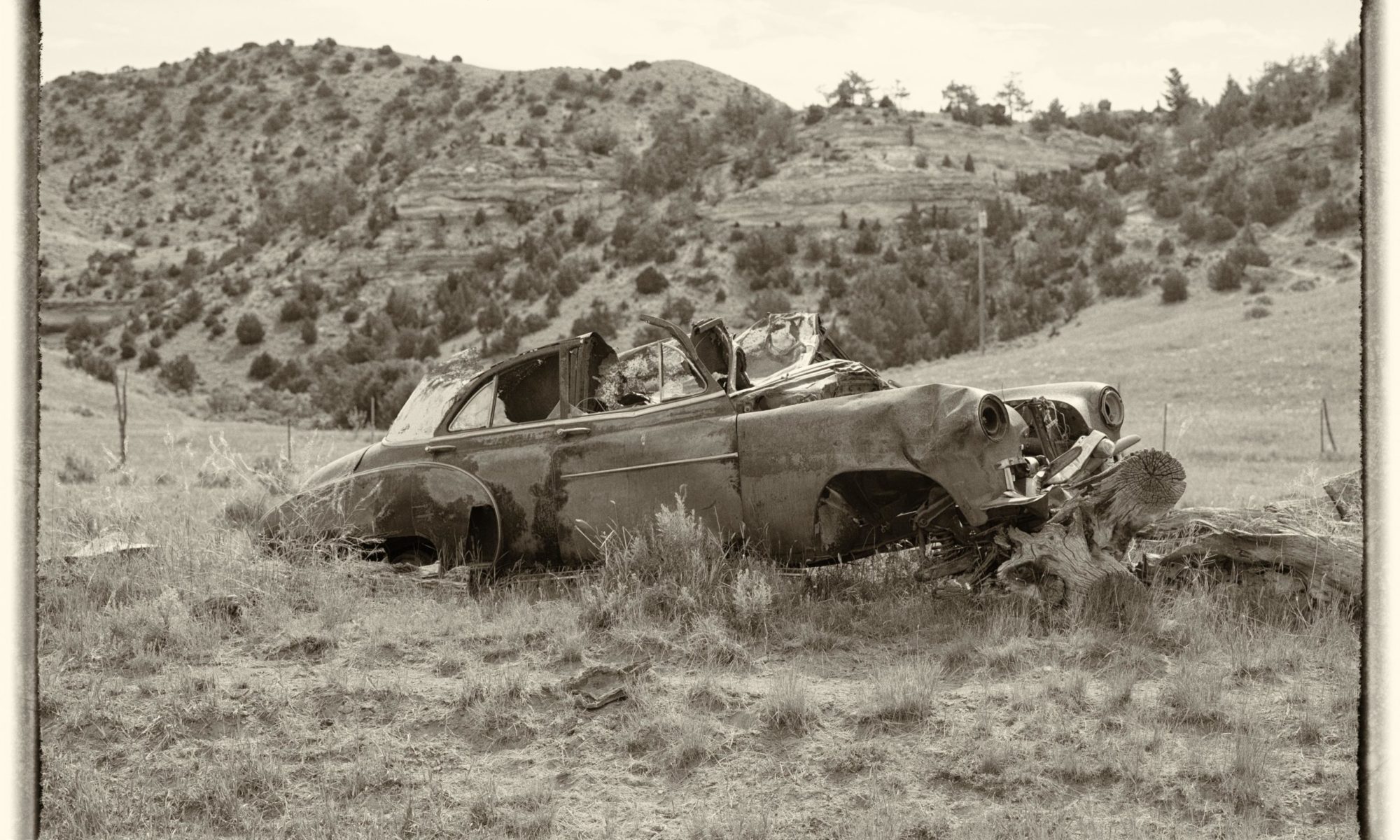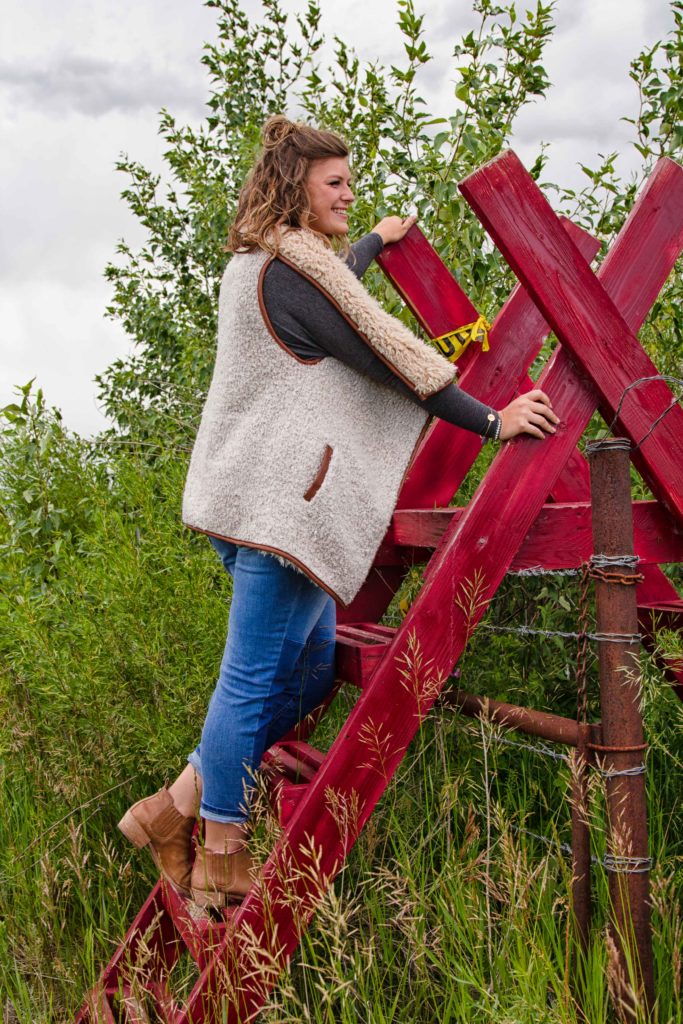by Guest Author, my dad
There was a piece of ground free from rocks just immediately past the long machine shed. It set in the little swale below the barn. This had the best soil around but most of it was on the wrong side of the line fence. And so it came to pass in those days that Ward and Parker put up a deer proof eight foot high woven wire fence around a garden plot that hung into the National Forest like an appendix. There was no gate into the garden. (Perhaps they feared the deer would learn how to open it.) Instead of having a gate, the garden fence had a stile, about five steps up and over it.[1]
The good soil was amply enriched from the manure piles beside the cow barn. Two Rhubarb plants sat at one corner of the garden, and a cluster of horseradish sat on the other side. Horseradish would clear your sinuses and bring tears to your eyes when you ground it. The Uncles couldn’t raise horseradish because the goats pawed the roots out of the ground. When they ate it, it curled their hair.
Most years the last spring frost came the first week of June and the first killing freeze came the first week in September. Mother loved green beans, but most years frost got more than she did. Daddy wanted cabbage, cauliflower and tomatoes. He started the plants in a hotbed – which was a covered pit kept warm by decaying horse manure. He could always raise good cabbages and cauliflower. In Melville they could raise good tomatoes, cucumbers, pumpkins, corn and squash. Our tomatoes were still green when the frost came. We pulled up the vines and hung them upside down in the barn or in the root cellar. In October we could go to the barn or cellar and pick red tomatoes that were as good as the wintertime tomatoes we get in the grocery store. Cabbage heads went to the cellar. So did carrots, beets, and potatoes.
In those days all Montana peas were English peas. And we had a bountiful supply of carrots, peas, and head lettuce.
I had a 4-H Club garden project. In High School I sold lettuce to Churchill and Amery’s for ten and twelve cents a head.
Down the valley, below the fence, acres and acres of fire burned trees commanded the valley. Their skeletons stood, tree after tree, line after line, east of the fence and across the valley and over the mountains. They left a waste land, a casket for dead trees, and a place where even the slightest wind moaned like the spirit of God trying to breathe life into the stark white forest. But a little patch of ground, with water and care, claimed hope and bounty once again.
[1] This was high enough that the pig couldn’t jump over it, but the housewife could climb over and cook supper for the chief gardener.

